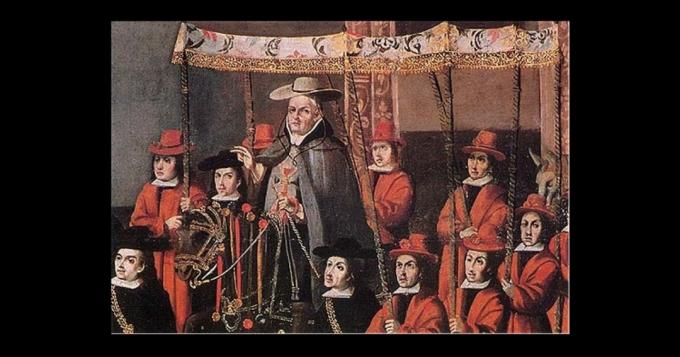The Enlightenment was an intellectual movement that emerged in France in the 17th century.
Also known as the Century of Lights, its main characteristic was to defend the use of reason (light) in relation to the use of faith.
The Enlightenment also had an impact on political, social and economic contexts, as it criticized absolutism and the privileges of the nobility and clergy.
Furthermore, the Enlightenment preached the correction of social inequalities and the guarantee of rights such as freedom and free possession of goods.
Below are some of the main features of the Enlightenment.
1. defended the power of reason

One of the main characteristics of the Enlightenment was to defend the sovereignty of the use of reason over the use of faith.
Illuminists believed that through reason, society's problems could be understood and resolved.
Enlightenment philosophy also believed in the progress of science and anthropocentrism, a doctrine that which places the human being at the center of the universe and argues that he is responsible for all his actions.
In other words, the Enlightenment defended the anthropocentric concept that was based on the idea that cultural, philosophical, historical and social actions were the total responsibility of man.
The Enlightenment valued the use of reason as the main instrument to achieve knowledge.
2. was against absolutism

King Louis XIV, also called King Sol, was an icon of monarchical absolutism
The Enlightenment ended absolutist practices in France and other countries in Europe.
Absolutism centralized all power in the hands of the king or queen. The monarchy had the autonomy to give orders and make decisions without it being necessary to give any kind of satisfaction to the organs of sovereignty.
While absolutism defended power, Enlightenment philosophy defended freedom of expression.
The Enlightenment was of fundamental importance in the fall of the Ancien Régime because, unlike the ideal absolutists, defended freedom, equality and progress, based on the transformation of society through reason.
3. He preached the limitation of powers and privileges of the nobility and clergy

One of the reasons for the rise of the Enlightenment was doubt and dissatisfaction.
The Illuminists were totally against the medieval heritage and started to designate this period where it predominated the monarchical sovereignty of the Dark Ages, as opposed to the title of Century of Lights, attributed to the Enlightenment.
This dissatisfaction caused the bourgeoisie, supported by the Enlightenment, to take a stand against the nobility and the clergy, who enjoyed, for example, privileges such as exemption from paying taxes.
The Enlightenment was not in favor of these perks.
4. Was in favor of economic freedom
The illuminists defended the existence of economic freedom, that is, that the economy could be operated according to its own laws, without State interference.
For this reason, Enlightenment adherents were against Mercantilism and Metalism, one of its main characteristics.
Mercantilism was a system in which the king had autonomy to intervene in all areas of the economy.
Metalism, in turn, consisted of a form of economic development centered on the accumulation of precious metals.
5. He fought for the bourgeoisie and its ideals

Jean Jacques Rousseau (28 June 1712 – 2 July 1778), defender of the ideas of the bourgeoisie.
The Enlightenment was against the centralization of power in the hands of the monarchy and defended the ideals of the bourgeoisie.
Led by peasants and workers, the bourgeoisie was opposed to the ideas of the nobility and the clergy as it had an interest in common with the Enlightenment thinkers.
An example of this was the fact that both bourgeois and Enlightenment thinkers were not in favor of the privileges accorded to the nobility and clergy.
Among numerous Enlightenment thinkers, Jean-Jacques Rousseau stood out as one of the main ones to defend the ideas of the bourgeoisie.
Author of the work “The Social Contract”, he stated that the State should be directed according to the will of the people.
6. Was not in favor of Mercantilism
The Enlightenment defended economic freedom and for this reason it was totally against the principles of mercantilism.
One of the main characteristics of Mercantilism is the strong state intervention in the economy.
The king had autonomy to determine the amount of taxes to be collected and controlled the business market.
This approach is totally contrary to what the Enlightenment preached, where economic freedom should exist and be exempt from state intervention.



